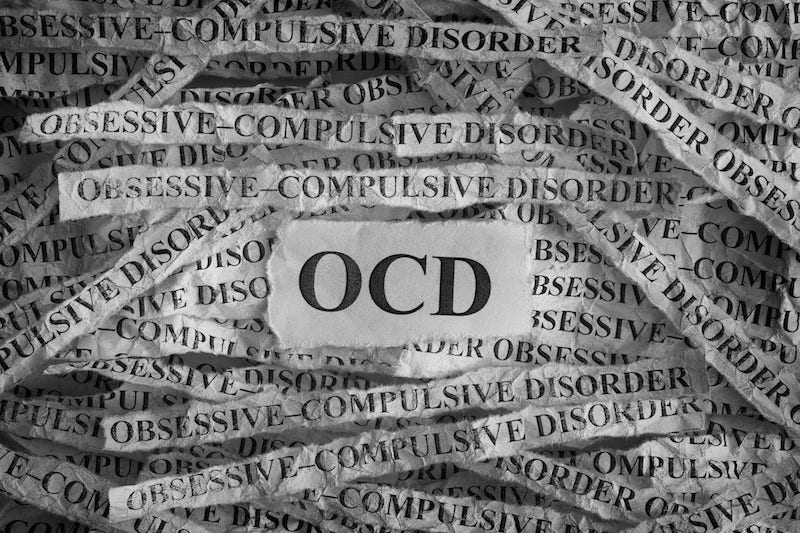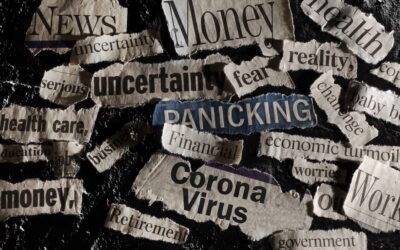OCD Treatment
Are You At The Mercy Of Your Own Thoughts?
- Do you frequently have intrusive and unwanted thoughts that cause you distress, anxiety, fear, or even disgust?
- Are you overly preoccupied with germ contamination, potentially being responsible for harming others, or getting everything you do just right?
- Have you developed compulsive rituals, patterns of behavior, or mental compulsions to neutralize the stress that those obsessive thoughts, urges, or images create?
 Perhaps a deep sense of self-doubt makes it difficult to enjoy a relationship because you need continual reassurance that you are a good person. Or maybe the thoughts you have are so unacceptable and unlike anything you would ever do that they make you question your moral scruples—or even your sanity.
Perhaps a deep sense of self-doubt makes it difficult to enjoy a relationship because you need continual reassurance that you are a good person. Or maybe the thoughts you have are so unacceptable and unlike anything you would ever do that they make you question your moral scruples—or even your sanity.
Almost everyone experiences negative or intrusive thoughts. However, OCD, or obsessive-compulsive disorder, goes far beyond stress and general anxiety. If you are struggling with OCD, you’re likely spending so much time and energy on performing rituals to avoid anxiety that it’s affecting your work performance, academics, relationships, and even simple daily routines.
Maybe you feel compelled to retrace your steps to make sure you haven’t hurt someone in the past or forgotten something important, like turning off the stove or locking the doors. You may have impulses and thoughts that challenge your sense of goodness or self-worth. And over time, you may even start to identify with those negative thoughts and false realities.
OCD can make it seem like life was personally tailored to punish you for something you are doing wrong. But that’s not the way it has to be. With my help, you can stop the unwanted thoughts, take control of your actions, and change how you cope with distress.
OCD Can Be Complicated And Time-Consuming
We all deal with stress or negative assumptions about ourselves in our own way. And most of us have experienced intrusive or negative thoughts in some form. At times, those ideas can jolt us into a greater sense of awareness, caution, or even an appreciation of life. But with the next song on the radio or the next topic in a conversation, that negative thought usually disappears.
However, people who struggle with OCD feel compelled to pursue that worry—to “figure it out” and to keep the threat in check. And no matter what they do to mitigate the fear and anxiety, it’s never enough. Although a certain amount of self-doubt is natural, when a person always has to double-check everything and second-guess themselves, it can impact nearly every area of their life.
It’s estimated that 1 in 40 adults in the US will develop some form of OCD within their lifetime.* And though OCD is known to have a neurobiological basis, research has yet to indicate any definitive causes. It is, however, believed that OCD is likely the combined result of genetic, neurobiological, cognitive, behavioral, and environmental factors. And because even children can develop it at a young age, we know that it is more than a mere stress response.
If you are living with OCD, it can be a lonely and time-consuming experience that can potentially contribute to signs of depression, phobias, and even panic attacks. But with a research-driven, cognitive-based approach to healing, you can counter negative thoughts, free yourself from the mental or behavioral coping rituals, and develop healthier ways of dealing with anxiety and uncertainty.
Overcoming OCD Through Compassionate And Caring Treatment
 OCD forces you to constantly check yourself and seek out reassurance from others, making it a mentally exhausting disorder. But because many people joke about being OCD or dismiss it by saying that “It’s all in your head” or “Just stop thinking about it,” it can also be a shameful experience. And though you may have loved ones who reassure you of your self-worth (and that your fears are unfounded), OCD locks the door so that no matter what anyone says, you never receive the message, and the cycle begins again.
OCD forces you to constantly check yourself and seek out reassurance from others, making it a mentally exhausting disorder. But because many people joke about being OCD or dismiss it by saying that “It’s all in your head” or “Just stop thinking about it,” it can also be a shameful experience. And though you may have loved ones who reassure you of your self-worth (and that your fears are unfounded), OCD locks the door so that no matter what anyone says, you never receive the message, and the cycle begins again.
However, Exposure and Response Prevention (ERP) therapy—my area of specialization— is often considered the gold standard in treating OCD. In contrast with traditional talk therapy, ERP is an empirically supported, formal treatment program that focuses on recovery and building skills to combat stressors on your own.
When we talk about OCD, obsessive relates to the negative assumptions made about the self, while compulsive signifies the rituals or patterns of behaviors developed to diminish the stress caused by those thoughts. Sometimes compulsions are difficult to recognize because they are more mental than physical. Rumination, figuring out the meaning, counting, and repeating lucky phrases are all types of mental compulsions.
And given that the human brain has on average over 20 to 40 thousand thoughts per day, it’s easy to see how it could get off track. With that in mind, I’ll want to start by identifying specific intrusive thoughts and the core fears, such as ‘Am I a good person? Am I responsible for hurting others? Am I a worthwhile person?’ Then, we can explore what those thoughts mean, if they are real, and how you respond to them, creating a sort of pros and cons, reality checklist as we go.
No matter what you are going through, I offer a compassionate, nonjudgmental, and supportive space for healing. I also tailor my approach to treating OCD according to each person’s needs and severity of OCD symptoms, using a range of treatment methods, including, ERP, Acceptance and Commitment Therapy (ACT), and Cognitive Behavioral Therapy (CBT). ERP is a very programmatic approach to learning how to recognize obsessive thoughts and separate them from your own. This, in turn, enables you to face your fears and be with your anxiety in times of distress without turning to compulsive coping mechanisms.
Similarly, ACT uses objectivity, mindfulness, and self-compassion to help you acknowledge your thoughts without letting them define your self-worth. It allows you to see your thoughts not as actions but as ideas, which can be immensely empowering. And CBT is useful for gaining different perspectives that focus not on thought-stopping but rather on understanding what motivates OCD and restructuring your cognitive response to those drivers.
 When OCD tells you to jump, you don’t have to ask, “How high?” In fact, it is imperative that you choose not to play that game with OCD. OCD is like a bully who is relentless in manipulating you into a game only the bully can win. Instead, you can change the rules for yourself and learn how to confront anxiety, identify intrusive, obsessive thoughts, and change compulsive behavior patterns. With my help and your commitment, you can free yourself from unhealthy fears, feel closer in your relationships, and simply engage more in life.
When OCD tells you to jump, you don’t have to ask, “How high?” In fact, it is imperative that you choose not to play that game with OCD. OCD is like a bully who is relentless in manipulating you into a game only the bully can win. Instead, you can change the rules for yourself and learn how to confront anxiety, identify intrusive, obsessive thoughts, and change compulsive behavior patterns. With my help and your commitment, you can free yourself from unhealthy fears, feel closer in your relationships, and simply engage more in life.
Anxiety is universal, but it doesn’t have to define you. I’ve been an anxiety therapist since 2003, and in this time, I have seen that with a tailored approach, healing is possible. Many of my clients overcome anxiety and go on to live a life that’s more aligned with their values and goals, fully engaged in the present.
Perhaps you are considering OCD Treatment but still have some concerns…
Is overcoming OCD hard?
Any time you tend to a wound, it can be uncomfortable. But if you are living with OCD, you are already in pain. You are already working hard every day to manage scary thoughts with compulsions and rumination. And because OCD is so sneaky, digging its teeth into what you value most, it has a tendency to resurface even if it goes dormant. That’s because those time-consuming rituals actually serve a purpose.
Working with an OCD therapist helps you understand the purpose of those mechanisms so that you can replace them with conscious ways of dealing with stress and anxiety. Plus, you will no longer be alone in your fight to overcome OCD on your own.
I’m worried the relief from anxiety therapy won’t last, and I don’t want to become dependent on therapy to feel better.
My goal is to work myself out of a job. I want to help you help yourself so you aren’t dependent on therapy now or in the future. Working with me will allow you to acquire new tools and a renewed mindset. You’ll experience increased awareness, a new perspective, and the confidence and skills you need to maintain lasting changes.
Is treatment for OCD costly?
Just like going to the doctor’s office to make sure that you are healthy, tending to your mental well-being is an investment. However, my goal is to make sure that you spend as little time with me as possible by giving you all the skills you need to be your own therapist. Though our time together may require a short-term expenditure, the benefit to your career, relationships, and overall well-being can pay off indefinitely.
Often, OCD treatment requires a front-loaded approach, meeting with the ERP therapist 1 to 2 times per week then stepping down to less frequent sessions as you gain the tools needed to practice ERP on your own.
So far nothing has worked. Do I even have OCD?
OCD is often an elusive, complicated condition that can be difficult to treat. Sometimes, it can go dormant and arise suddenly in the presence of new or even familiar stressors. However, ERP is empirically supported and specifically suited to address not just behaviors related to OCD but also the underlying motivations for them.
 I know that it can be hard trying something new, especially if past attempts haven’t yielded results. However, the tools I use offer proven results for managing symptoms of and overcoming OCD, which means that your hard work is more likely to pay off.
I know that it can be hard trying something new, especially if past attempts haven’t yielded results. However, the tools I use offer proven results for managing symptoms of and overcoming OCD, which means that your hard work is more likely to pay off.
Let Me Help You Change The Way You Think
Recently on the Blog
Panic Attacks: Understanding the Vicious Cycle of Anxiety
Maybe you recently experienced your first panic attack, or maybe you have been dealing with this issue for quite some time now. Either way, you know that you can’t simply “think positively” to ward off a panic attack. Telling yourself over and over again that there’s...
Treating Panic Disorder and OCD with Exposure and Response Prevention (ERP)
There are many different approaches to treating and managing panic disorder and obsessive compulsive disorder (OCD). While these two conditions are not the same, there are some similarities in commonly prescribed treatments. One such method that therapists can utilize...
Has Your Anxiety Become Worse Over Time? – Understanding the Reason
Suffering from anxiety isn’t easy. No matter what anxiety you deal with, the desire for relief is always there. Whether it’s social anxiety, PTSD, OCD, agoraphobia, specific phobias, or generalized anxiety disorder, you yearn for a break from painful symptoms. You’re...
High-Functioning Anxiety: The Storm Brewing Beneath a Calm Exterior
Many people think that the symptoms of anxiety would be obvious. After all, you would assume that you could usually tell when someone is nervous, or if they’re hesitant to join in on conversations and socialize. However, anxiety isn’t always so apparent. In fact, many...




